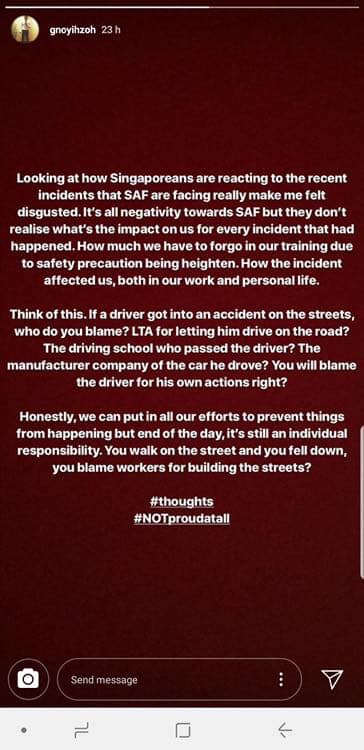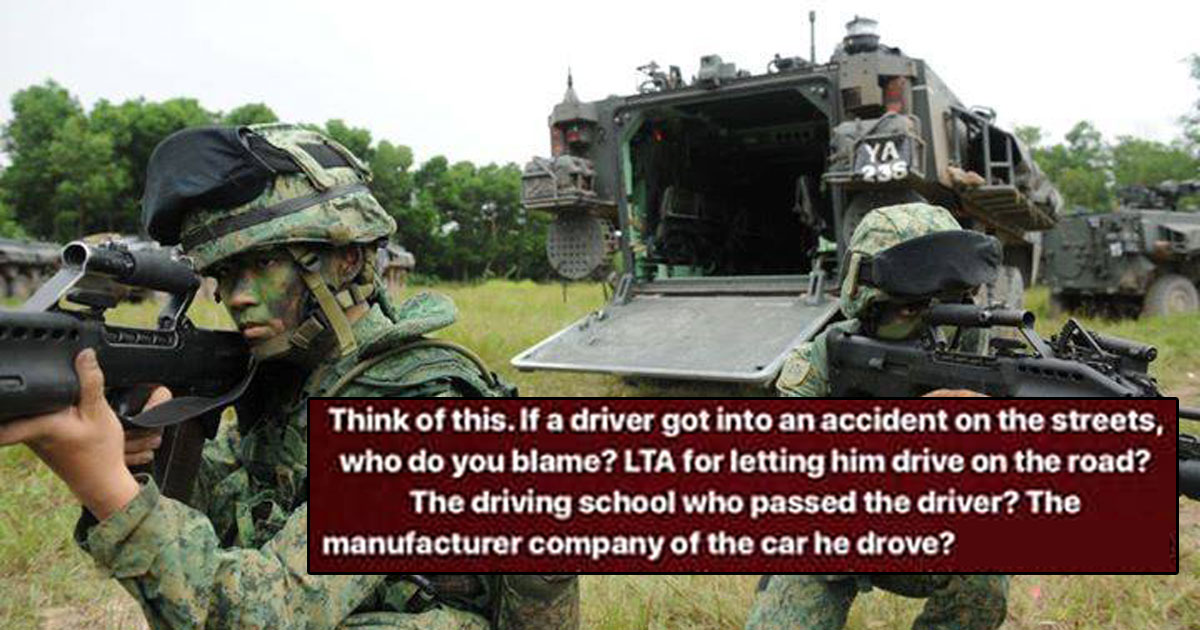It has been more than 24 hours since the passing of local actor Aloysius Pang was revealed to the public.
This was after the 28-year-old succumbed to his injuries sustained during reservist training in New Zealand.
Public opinion suddenly against NS
As news trickled through the news feed of millions of Singaporeans overnight, it became clear that the tide of public opinion was suddenly turning against National Service and the mandatory conscription policy in Singapore in just a matter of hours.
This was understandable given the gravity of the situation and the unprecedented high profile nature of it.
Many Singaporeans took to social media to vent their anger at what they perceived to be the cause of the loss of an innocent life -- and several others in the course of the past year or so alone.
Rationalise from the other perspective
As emotions are raw and continue to run high for a few more days before feelings of normalcy is partially restored, there are those who do not wish to remain silent as the avalanche of criticism piles on seemingly unabated.
Some have already considered the counter-backlash arguments by arguing for cooler heads to prevail.
Essentially, they are asking of the anti-NS camp what will be of Singapore if NS is abolished?
The essence of this steadfast stand against the anti-NS sentiments can be summed up as such: NS is necessary, but the blame game is not.
Facebook post calling for Singaporeans not to be seized by sentiments
One Facebook post, in particular, has stood out and gained traction in standing firm on arguing for the necessities of National Service obligations and the need to contextualise the target of blame.
The post, put up on Jan. 24 at 4.30pm, was shared more than 1,200 times in less than eight hours.
It is about a screen shot of an Instastory point-of-view that spoke out against this current backlash and the convenience of calling for accountability from the top.

This is what the Instastory said:
Think of this. If a driver got into an accident on the streets, who do you blame? LTA for letting him drive on the road? The driving school who passed the driver? The manufacturer company of the car he drove? You will blame the driver for his own actions right?
Honestly, we can put in all our efforts to prevent things from happening but end of the day, it's still an individual responsibility. You walk on the street and you fell down, you blame workers for building the streets?
#thoughts
#NOTproudatall
The Facebook caption then added its own commentary agreeing that the backlash is overwrought.:
How to think of this argument
While the analogy in the Instastory is a tad flawed, because no one is forcing anyone to drive on the road and inevitably an accident might take place, it is always debatable where responsibility lies when a tragedy occurs.
To pin the blame fully on the victim, as this post suggests, is also totally inappropriate -- if by definition this latest incident was an "accident", it would then be the result of a confluence of factors, and not just the result of one person's action or inaction.
And is the authority the one necessarily always at fault? Or cushioned from it?
Ultimately, given that there is a massive chain of command in an organisation as large as the Singapore Armed Forces, and given that to a large degree Singapore's security is assumed to be conditional on NS, it might be impossible to proportion out the blame as cleanly as most people imagine.
Or maybe it is still premature to be asking these questions barely 24 hours in?
Give it a few more days.
If you like what you read, follow us on Facebook, Instagram, Twitter and Telegram to get the latest updates.
